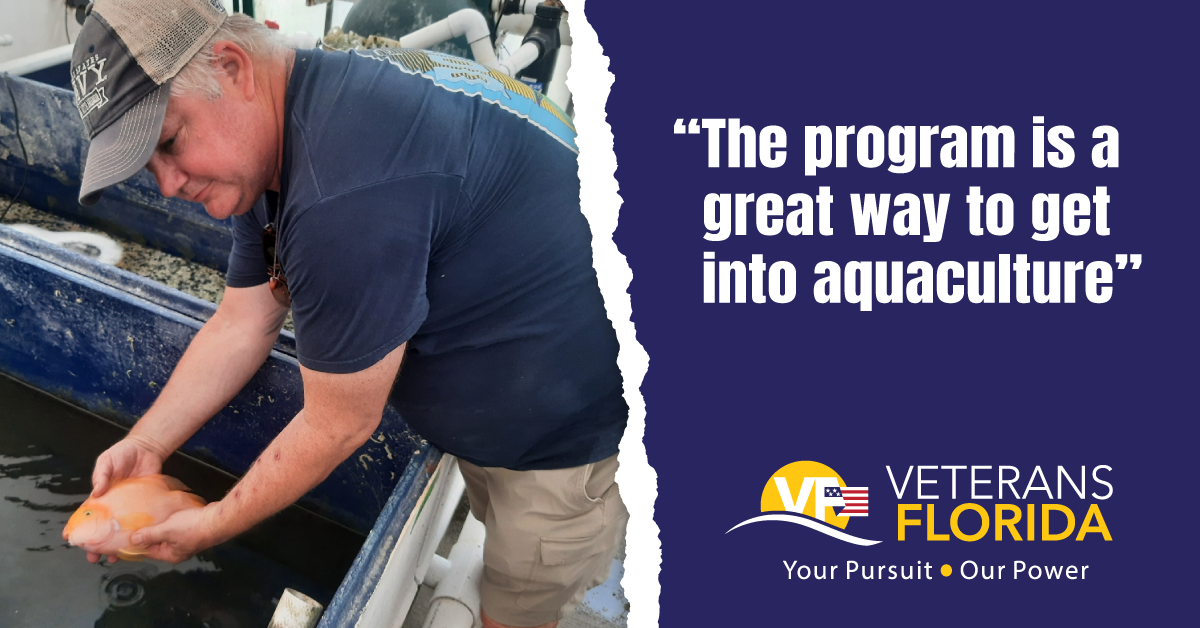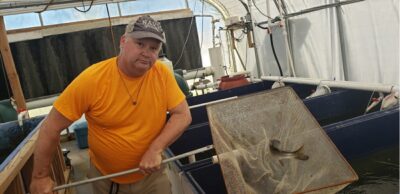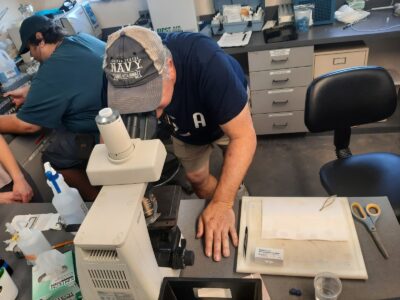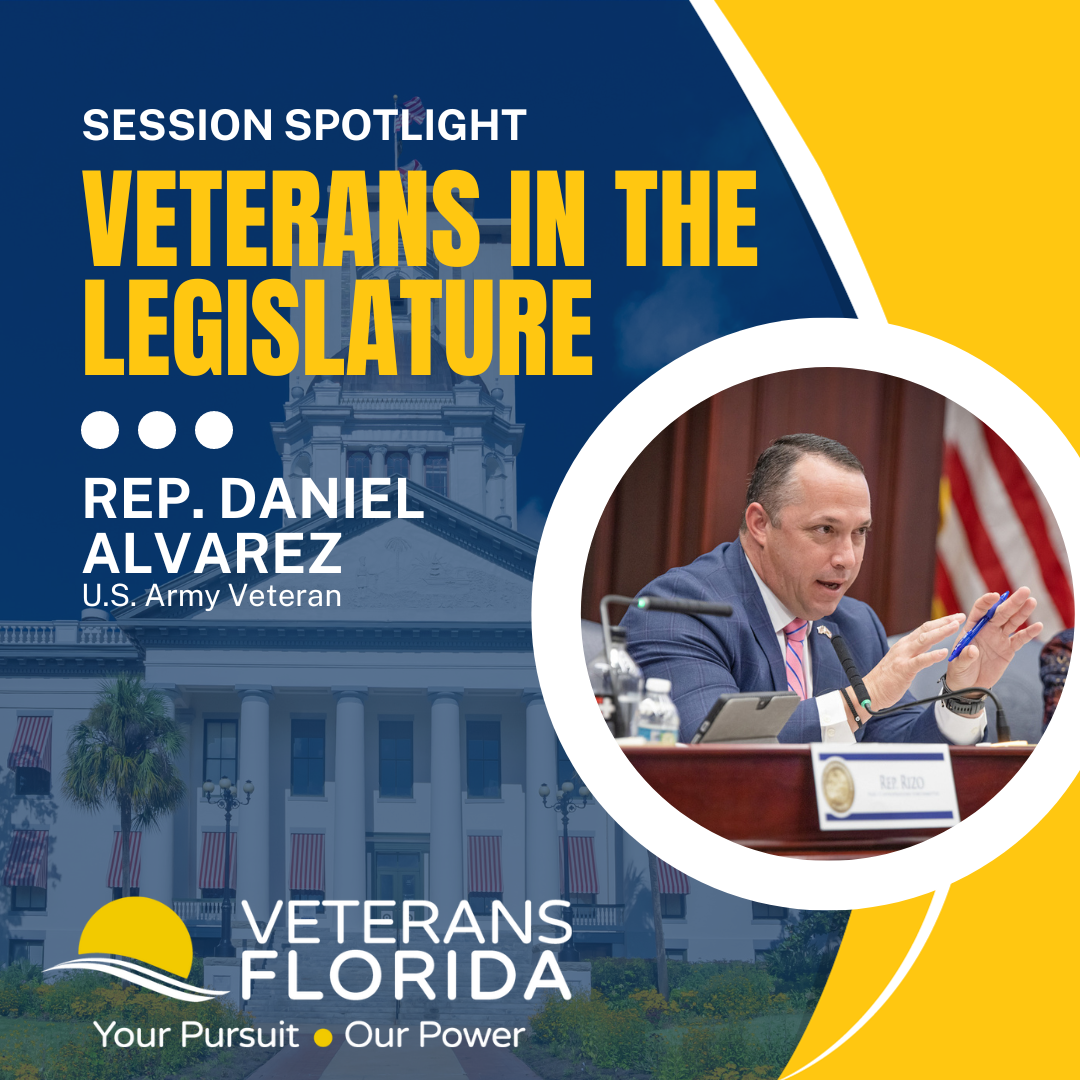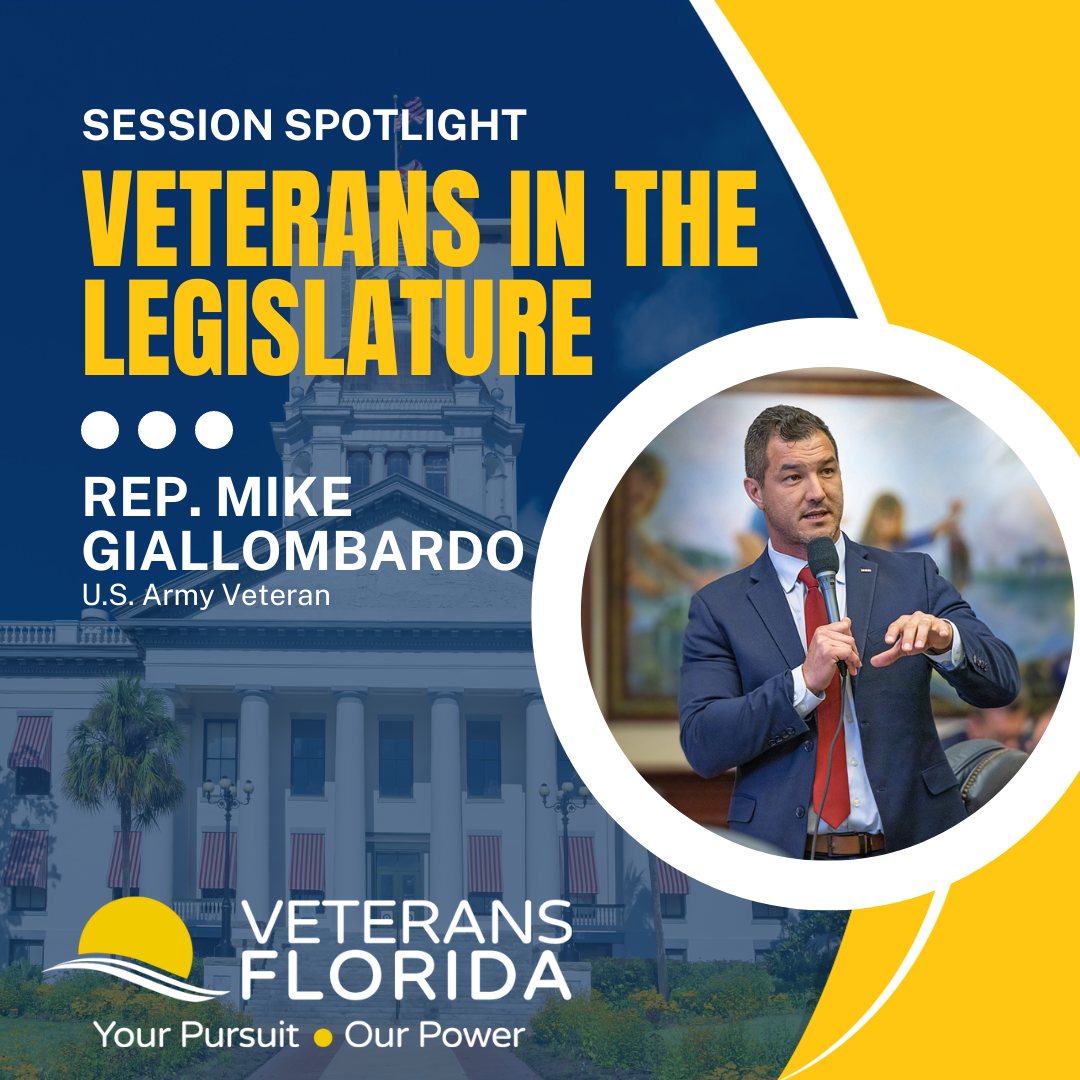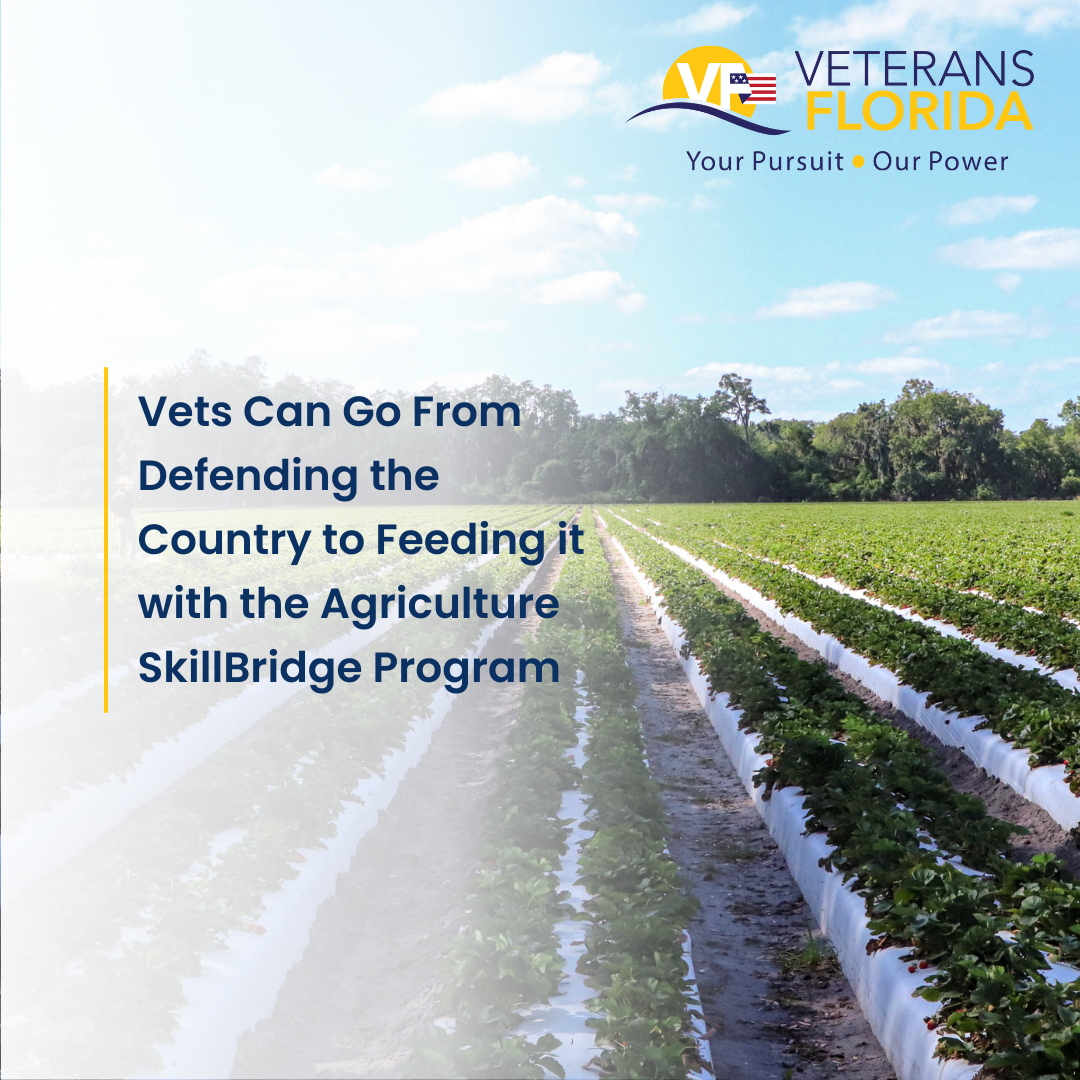Former U.S. Navy Petty Officer Douglas Baznik knows a good opportunity when he sees one. A businessman for most of his civilian life, he enrolled in the Veterans Florida Agriculture Program to gain hands-on experience to run an oyster farm, implement his ideas to reduce red tide, and break into the aquaculture sector of Florida’s agriculture industry.
Growing up in Akron, Ohio, Baznik saw joining the military as a great opportunity to travel to different places and enlisted with the Navy. While stationed at NAS Cecil Field in Jacksonville, he decided it was the right time to pursue a degree in finance and start a business, transitioning out of the military in the late 1980s. After a brief stay in Ohio, he returned to Florida and has called the Sunshine State his home ever since.
“I went back to Ohio for a little bit but quickly realized how much I missed the sunshine,” Baznik recalled. “So I said ‘heck with this crummy weather that they have’ and moved to the Tampa Bay area.”
After earning a bachelor’s in finance from the University of South Florida, Baznik started running his own businesses in the Tampa area, initially selling in construction before breaking into the solar industry, where he’s sold commercial and residential solar panels and systems over the past decade.
“Here in Florida, there’s so much fishing area, but what I’m looking to do is go into oyster farming, and [Veterans Florida] are customizing the program for me so I can learn about that.”
Living five minutes from the water in St. Petersburg, Baznik is an avid fisherman who’s seen firsthand the devastation caused by the increasing recurrence of the harmful algae bloom known as red tide and wanted to find a way to implement his ideas to solve the problem.
“I’m sitting there looking at the red tide and they’re trying to figure out how to control it, but we have a natural way to reduce it,” he said, adding how oyster beds are known to naturally filter harmful nutrients. “A single oyster can filter 50 gallons of water a day. My idea is setting up a bunch of oyster beds on each side of where the red tide is acting up, so when the current goes down one way it’s getting filtered and then when it flows back out it’s getting filtered again.”
While looking for a way to start his own oyster farm, Baznik discovered the Veterans Florida Agriculture Program — a six-month paid fellowship offering veterans the opportunity to receive hands-on agriculture and aquaculture training and work alongside leading researchers at the University of Florida Institute of Food and Agricultural Sciences (UF/IFAS).
“I’ve always been interested in different parts of the agriculture industry but didn’t really want to grow crops,” Baznik said. “Here in Florida, there’s so much fishing area, but what I’m looking to do is go into oyster farming, and [Veterans Florida] are customizing the program for me so I can learn about that.”
Baznik began his training at the UF/IFAS Tropical Aquaculture Laboratory in Ruskin this past October by learning about the different areas within the aquaculture market, including which plants are grown and the fish used for ornamental and consumption purposes. Along with using GPS to track snook migration patterns, Baznik said his biggest takeaway from the fellowship is learning the importance placed on water quality and how to conduct a wide range of tests on aquafarms.
“[Veterans Florida] is going to talk to you, find out where your interests are, and customize the program to maximize growth in the area that you’re interested in.”
Working alongside UF/IFAS Assistant Extension Scientist Eric Cassiano, he regularly travels to different local aquaculture farms to measure the levels of CO2, pH, nitrate, selenium, and more to ensure the well water won’t hinder the aquatic livestock from making it to market and that it’s safe for human consumption.
“They really stressed how water quality is the most important part of the lab,” Basnik said. “It’s part of the program where you’re able to go to aquafarms in the market and see firsthand what kind of water or fish problems the farmers are having and how to solve them.”
Cassiano said the Veterans Florida Agriculture Program offers veterans like Baznik the opportunity to explore their desired area of Florida’s unique agriculture industry, including aquaculture, and provides them with a skillset to be competitive in the market they choose to enter.
“At the UF/IFAS Tropical Aquaculture Lab, Doug is learning about all aspects of Florida’s ornamental fish aquaculture production industry while also being exposed to Florida’s other aquaculture commodities,” Cassiano said. “After the internship, he’ll have a baseline on how to integrate those learned skills into future employment.”
Starting in January, Baznik will begin working with oyster farmers around the Crystal River area, and after completing the program in late April, he plans to enroll in the Veterans Florida Entrepreneurship Program to launch his own oyster business.
Baznik said he plans to seek state and federal funding to use the oysters to combat red tide while starting his own aquafarm to sell oysters. In the long-term, Baznik hopes to see his farm be part of the revitalization of the region’s oyster market.
For veterans considering a career or starting a business in the aquaculture sector of Florida’s agriculture industry, Baznik praised Veterans Florida for tailoring the program to fit his unique interest in oysters and recommended that veterans reach out to get started.
“The best part of this program is that it’s not a set structure,” he said. “[Veterans Florida] is going to talk to you, find out where your interests are, and customize the program to maximize growth in the area that you’re interested in.”
Baznik added: “If you’re looking to make your own path, the program is a great way to get into aquaculture. There are endless opportunities in Florida’s market.”

